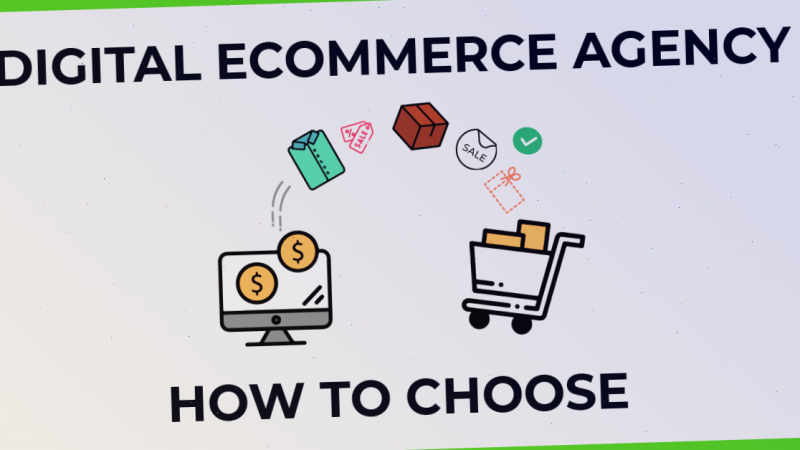How to Choose the Right E-commerce Agency for Your Online Store

When it comes to building a successful online store, choosing the right e-commerce agency can be a game-changer. Whether you’re launching a new store or looking to revamp an existing one, working with a skilled agency can help optimize your site for design, performance, and user experience. If you’re based in the UK, you might want to start by exploring some of the best agencies in the UK that specialize in helping businesses grow their online presence.
1. Identify Your Specific Needs
Before selecting an e-commerce agency, it’s crucial to define what you need. Are you building a store from scratch or just looking to improve specific areas like design, performance, or marketing? Different agencies specialize in various services—some focus on full-site development, while others excel in areas like user interface (UI) and user experience (UX) design, search engine optimization (SEO), or integrating third-party tools.
For example, if your site already functions well but could use a visual upgrade, you might want an agency that specializes in design and branding. Alternatively, if your store struggles with slow loading times or poor conversion rates, focus on agencies that have a proven track record in site optimization and performance enhancements.
2. Industry-Specific Expertise
Finding an agency with experience in your particular industry can be a significant advantage. E-commerce needs can differ greatly depending on what you’re selling—whether it’s fashion, electronics, beauty products, or digital goods. Agencies that have worked with similar businesses are often better equipped to understand the challenges and opportunities unique to your industry.
For instance, a fashion retailer may benefit from an agency that understands the importance of visual merchandising, while a tech company might need an agency that knows how to showcase detailed product specifications. Working with a team that understands your target audience and market trends can lead to a more tailored and effective e-commerce solution.
3. Portfolio and Track Record
One of the best ways to evaluate an e-commerce agency is by reviewing their portfolio. A solid portfolio not only demonstrates the agency’s design and technical skills but also shows their ability to execute projects successfully in a variety of industries. Look for case studies or examples of past work that are similar to what you’re aiming to achieve.
While reviewing portfolios, consider both the aesthetic and functional aspects of the websites they’ve built. How well do these stores align with the brand’s identity? Are they easy to navigate? Do they perform well on mobile devices? A strong portfolio reflects the agency’s ability to create not just beautiful but also high-performing e-commerce websites.
4. Range of Services Offered
Different agencies provide different sets of services, so it’s essential to find one that matches your needs. Some agencies offer a full spectrum of e-commerce services, from initial concept and design to development, marketing, and ongoing support. Others may focus solely on one or two areas, such as app integrations, UX/UI design, or SEO.
If you need a full-service agency that can handle all aspects of your online store, look for a team that offers end-to-end solutions, including site maintenance and updates. On the other hand, if your focus is narrow, such as improving your store’s search engine ranking or integrating a new payment system, you may benefit from hiring a specialized agency.
5. Local Knowledge and Market Understanding
While many e-commerce agencies work remotely, there are definite advantages to working with a local team. An agency that understands your region’s market trends, customer behaviors, and regulatory requirements can offer more tailored solutions. If you’re targeting customers in the UK, for instance, it can be helpful to work with an agency that is well-versed in the local market.
For UK-based businesses, the best agencies in the UK are likely to have a deeper understanding of the specific challenges and opportunities within the region, helping you connect more effectively with your target audience. They may also provide faster communication and more personalized support due to their proximity.
